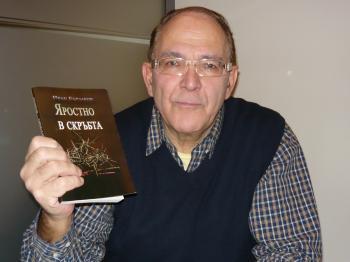The European Commission (E.C.), the administrative branch of the European Union, has halted 220 million Euros (US$280 million) in financing for one of its newest members, Bulgaria. The commission confirmed that the action comes in response to Bulgaria’s failure to deal with corruption within the government as well as cases of fraud.
In July this year the EU accreditations of two Bulgarian agencies - the Ministry of Finance and the Ministry of Regional Development and Public Works - were withdrawn, and all financial transfers to those agencies were terminated.
“It is with regret that I announce that the E.C. is not able to reinstate the accreditations of the two agencies taken away in July. I think that Bulgaria will now undertake urgent measures to improve the management of the Euro funds,” stated Christina Nagy, spokesperson for the E.C., during a briefing in Brussels last week. She clarified that this decision had been made after a careful analysis of information, and based on what has been done in Bulgaria so far.
“There are a lot of wrongful things allowed. The last investigations found even more irregularities. The risk of political intervention is still not recognized and fully acknowledged. However, this is a first and necessary step for the resolution of this issue,” commented EU Enlargement Commissioner Olli Rehn. He reiterated that the E.C. had already decided earlier this year to stop the money for Bulgaria because of suspected corruption at high levels in the government.
Bulgaria’s Response
The Bulgarian government has responded aggressively to the decision, openly confronting the E.C. with accusations of dual standards and politicizing the issue.
The opposition parties in Bulgaria are using the decision to justify demands for the resignation of ruling party leaders and to call for pro-term elections.
Pro-term elections are not likely to occur, however, because the regular elections for Bulgaria’s national assembly and the EU parliament are only 6 months away, and the time is not sufficient for a new majority to take sufficient action. Pro-term elections would result in the formation of a “caretaker” government, which requires at least two months of suspended government functions. This has led analysts to view the opposition calls mostly as political posturing ahead of the regular elections.
After reproving the E.C. decision, Bulgarian Prime Minister Sergey Stanishev stated during his visit in Berlin that Bulgaria is being treated differently than the rest of the new and old EU members.
Bulgarian Deputy Prime Minister Meglena Plugchieva has become the main target of critics and Bulgarian opposition party members. Sharing the public blame with her are the country’s chief prosecutor and minister of Justice, but they have both stated that the justice system cannot be held solely accountable, and that everyone in the government shares responsibility.
International Response
The EU’s decision has raised eyebrows throughout Europe.
“The penalty is the first of its kind for an EU member and will be seen as a severe warning to Bulgaria to fight the pernicious influence of the mafia,” stated the Times Online in a Nov. 26 article.
“Bulgaria has lost €520m [US$677 million] of European Union funding for failing to crack down on fraud and corruption among officials appointed by the Socialist-led coalition government, the first time the European Commission has stripped a member state of funds in this way,” wrote the Financial Times.
The BBC also referred to Bulgaria as “the most corrupt of the EU’s 27 member states.”
Prime Minister Stanishev has staunchly defended his ministers, and no one from the government has yet to resign amid the scandal, but political tensions continue to rise within the country and within the European Parliament.


